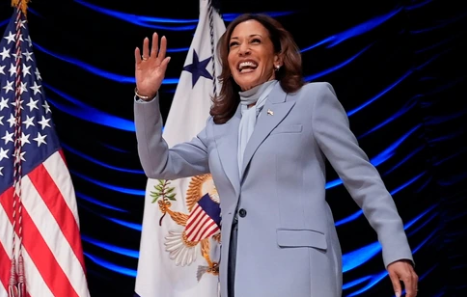During a recent address to the Congressional Hispanic Caucus Institute, Vice President Kamala Harris once again adopted a new accent while speaking to the audience. The event, held in Washington D.C., was part of a series of celebrations for Hispanic Heritage Month, and Harris delivered a speech aimed at highlighting the Biden administration’s commitment to advancing issues impacting the Latino community.
However, it wasn’t the content of the speech that drew immediate attention but rather the shift in Harris’ accent. Observers noted a subtle yet distinct change in her vocal delivery, which many described as an attempt to resonate more closely with her audience. This is not the first time the Vice President has been criticized or questioned for altering her speaking style depending on the group she is addressing.
While some viewers see the move as a genuine effort to connect with different communities, critics argue that such shifts can appear inauthentic or pandering. Political commentators have pointed to previous instances where Harris modified her accent or cadence during speeches to predominantly Black, Southern, or rural audiences. These moments have occasionally sparked viral conversations on social media, leading to both support and criticism from various political spheres.
Harris’ supporters argue that her ability to adjust her tone reflects a broader political strategy aimed at building rapport and empathy with diverse groups. “Kamala’s strength lies in her ability to make people feel seen and heard,” said one Democratic strategist. “Accents are a natural part of human communication, and public figures often shift their tone depending on the context.”
Yet, opponents argue the changes may backfire, creating perceptions of inconsistency. “It’s about authenticity,” said one political commentator. “When voters detect a shift in the way someone speaks, especially in public figures, it can sometimes feel as if they’re being pandered to.”
As Vice President Harris continues her work with various communities across the U.S., her speaking style is likely to remain a topic of conversation. Whether these vocal shifts are seen as an effective political tool or a hindrance to her image will depend on the public’s evolving perceptions.








 India
India












